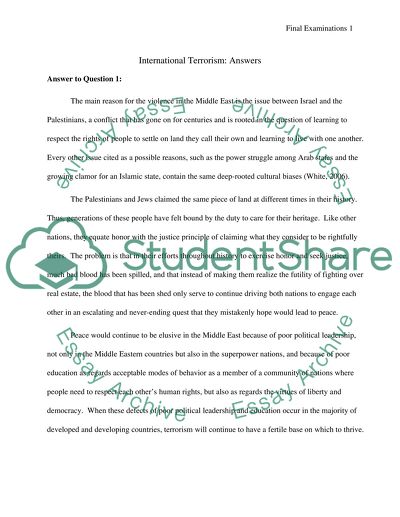Cite this document
(International Terrorism Q&A Assignment Example | Topics and Well Written Essays - 1750 words, n.d.)
International Terrorism Q&A Assignment Example | Topics and Well Written Essays - 1750 words. https://studentshare.org/politics/1508779-international-terrorism-question-answers
International Terrorism Q&A Assignment Example | Topics and Well Written Essays - 1750 words. https://studentshare.org/politics/1508779-international-terrorism-question-answers
(International Terrorism Q&A Assignment Example | Topics and Well Written Essays - 1750 Words)
International Terrorism Q&A Assignment Example | Topics and Well Written Essays - 1750 Words. https://studentshare.org/politics/1508779-international-terrorism-question-answers.
International Terrorism Q&A Assignment Example | Topics and Well Written Essays - 1750 Words. https://studentshare.org/politics/1508779-international-terrorism-question-answers.
“International Terrorism Q&A Assignment Example | Topics and Well Written Essays - 1750 Words”. https://studentshare.org/politics/1508779-international-terrorism-question-answers.


